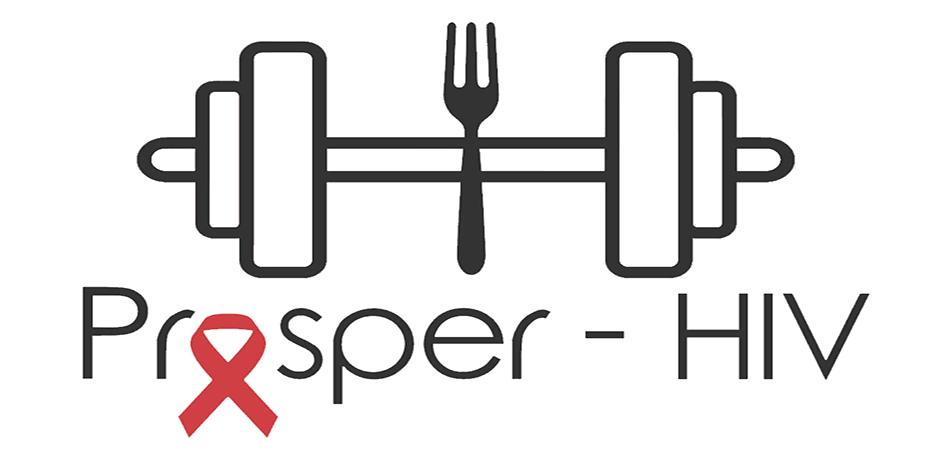Impact of Physical Activity Routines and Dietary Intake on the Longitudinal Symptom Experience of People Living with HIV (PROSPER-HIV)

Years: 2018-2023
Background
People living with HIV (PWH) experience a disproportionately high symptom burden (e.g. fatigue, insomnia, pain) with few treatment options. Non-pharmacological treatment options are highly desirable for symptom management among PLHIV who already experience high pill burden from multiple comorbid diseases. Building on our previous work, the PROSPER-HIV study is examining the effect of physical activity and dietary intake as effective symptom management strategies in 706 PWH.
Specifically, we are:
- Identifying and characterizing longitudinal, objectively-measured, physical activity and dietary patterns among PWH;
- Determining which aspects of physical activity patterns and diet quality are associated with decreased symptom burden and intensity in PWH, and if this relationship is moderated by age and sex; and
- Exploring the potential mediating effect of anthropomorphic and physical fitness variables on the relationships between physical activity, dietary patterns, and symptom burden and intensity in PWH.
Research Design
We are conducting a four-year, prospective, observational study of 706 Centers for AIDS Research (CFAR) Network of Integrated Clinical Systems (CNICS) participants who complete an enhanced PRO assessment to measure physical activity and diet once a year for three years. We will integrate these measures in an enhanced annual assessment of PRO plus objective measures of physical activity, diet intake and anthropomorphic factors at four CNICS sites: University of Washington, Case Western Reserve University, University of Alabama at Birmingham, and Fenway Health. This study was registered at ClinicalTrials.gov #NCT03790501.
Research Team
Principal Co-Investigators
- Allison Webel, PhD, RN, FAAN, University of Washington School of Nursing
- Amanda L. Willig, PhD, RD, University of Alabama at Birmingham
Co-Investigators
- Heidi Crane, MD, School of Medicine, University of Washington
- Michael Saag, MD, School of Medicine, University of Alabama at Birmingham
- Julia Fleming, MD, Fenway Health
- Dustin Long, PhD, University of Alabama at Birmingham
- Tom Buford, PhD, University of Alabama at Birmingham
Results
Enrollment is complete at all study sites and following up and data analysis are ongoing. The following are a few of our recent publications:
- Oliveira VHF, Willig AL, Horvat Davey C, Buford TW, Menezes P, Cachay E, Crane HM, Burkholder GA, Gripshover BM, Fleming JG, Cleveland JD, Webel AR. Relationship between adiposity and biomarkers of aging and frailty among adults aging with HIV. Journal of Acquired Immune Deficiency Syndromes, v. 95, p. 377-382, 2024.
- dos Santos AP, Willig AL, Ruderman S, Oliveira VHF, Horvat Davey C, Buford TW, Long DM, Gripshover B, Katundu M, Cleveland JD, Crane HM, Fleming J, Burkholder G, Saag MS, Webel AR. Hazardous alcohol consumption is associated with an increased occurrence of falls among people with HIV in the PROSPER-HIV Study. AIDS, Accepted for publication on 10/24/2024.
- Fazeli, P.L., Davey, C.H., Webel, A.R., Oliveira, V., Buford, T.W., Vance, D.E., Burkholder, G., Crane, H.M., Fleming, J. and Willig, A.L., 2024. Select Dietary Components Are Associated With Better Global Cognition in US Adults With HIV: A Pilot Study. Journal of the Association of Nurses in AIDS Care, 35(5), pp.388-396.
- Webel, A.R., Davey, C.H., Oliveira, V., Cleveland, D., Crane, H.M., Gripshover, B.M., Long, D.M., Fleming, J.G., Buford, T.W. and Willig, A.L., 2023. Physical activity is associated with adiposity in older adults with HIV in the modern HIV era. AIDS, 37(12), pp.1819-1826.
- Fazeli, P.L., Willig, A.L., Oliveira, V., Buford, T.W., Vance, D.E., Burkholder, G., Crane, H.M., Horvat Davey, C., Fleming, J. and Webel, A.R., 2023. The association between objectively-measured physical activity and cognitive functioning in middle-aged and older people living with HIV. AIDS and Behavior, 27(4), pp.1199-1210.
- Ruderman, S.A., Webel, A.R., Willig, A.L., Drumright, L.N., Fitzpatrick, A.L., Odden, M.C., Cleveland, J.D., Burkholder, G., Davey, C.H., Fleming, J. and Buford, T.W., 2023. Validity properties of a self-reported modified frailty phenotype among people with HIV in clinical care in the United States. Journal of the Association of Nurses in AIDS Care, 34(2), pp.158-170.
- The PROSPER-HIV Study: A Research Protocol to Examine Relationships Among Physical Activity, Diet Intake, and Symptoms in Adults Living With HIV. Journal of the Association of Nurses AIDS Care. 2020 May-Jun;31(3):346-352. doi: 10.1097/JNC.0000000000000145.
- Physical activity trends and metabolic health outcomes in people living with HIV in the US, 2008-2015. Progress in Cardiovascular Disease. 2020 Mar – Apr;63(2):170-177. doi: 10.1016/j.pcad.2020.02.005.
- A Review of Chronic Comorbidities in Adults Living With HIV: State of the Science. J Assoc Nurses AIDS Care. 2021 May-Jun 01;32(3):322-346. doi: 10.1097/JNC.0000000000000240.
- Fazeli, P.L., Willig, A.L., Oliveira, V., Buford, T.W., Vance, D.E., Burkholder, G., Crane, H.M., Horvat Davey, C., Fleming, J. and Webel, A.R., 2022. The Association Between Objectively-Measured Physical Activity and Cognitive Functioning in Middle-Aged and Older People Living with HIV. AIDS and Behavior, pp.1-12.
- Webel, A.R., Davey, C.H., Oliveira, V., Cleveland, D., Crane, H.M., Gripshover, B.M., Long, D.M., Fleming, J.G., Buford, T.W. and Willig, A.L., 2023. Physical activity is associated with adiposity in older adults with HIV in the modern HIV era. AIDS, 37(12), pp.1819-1826.
- Lee, D., 2023. The importance of exercise and physical activity in older adults with HIV. AIDS, 37(12), pp.1905-1907.
Media
- Cleveland.com
- Birmingham Business Journal
Support
This project is supported by the National Institutes of Health, National Institute of Nursing Research (R01NR018391).